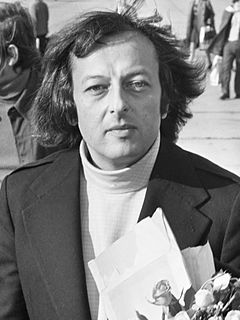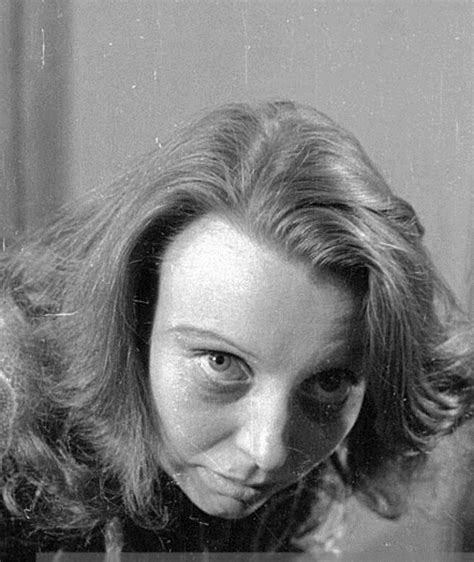A Quote by Anne Fadiman
...the reader who plucks a book from her shelf only once is as deprived as the listener who, after attending a single performance of a Beethoven symphony, never hears it again.
Related Quotes
Every reader, as he reads, is actually the reader of himself. The writer's work is only a kind of optical instrument he provides the reader so he can discern what he might never have seen in himself without this book. The reader's recognition in himself of what the book says is the proof of the book's truth.
The object we call a book is not the real book, but its potential, like a musical score or seed. It exists fully only in the act of being read; and its real home is inside the head of the reader, where the symphony resounds, the seed germinates. A book is a heart that only beats in the chest of another.
I would never normally approach a woman in this way, but I couldn't help but notice that you have the eyes of a lady I was once desperately in love with. " "What a shame to love only once," she said, showing her white teeth in a wicked smile. "I've heard some men can manage twice or even more." I ignored her gibe. "I am only a fool once. Never will I love again.
She had always been a reader… but now she was obsessed. Since her discovery of the book hoard downstairs from her job, she’d been caught up in one such collection of people and their doings after the next…The pleasure of this sort of life – bookish, she supposed it might be called, a reading life – had made her isolation into a rich and even subversive thing. She inhabited one consoling or horrifying persona after another…That she was childless and husbandless and poor meant less once she picked up a book. Her mistakes disappeared into it. She lived with an invented force.
As the Little House settled down on her new foundation, she smiled happily. Once again she could watch the sun and moon and stars. Once again she could watch Spring and Summer and Fall and Winter come and go. Once again she was lived in and taken care of. Never again would she be curious about the city... Never again would she want to live there... The stars twinkled above her... A new moon was coming up... It was Spring... And all was quiet and peaceful in the country.
The way in which the photograph records experience is also different from the way of language. Language makes sense only when it is presented as a sequence of propositions. Meaning is distorted when a word or sentence is, as we say, taken out of context; when a reader or listener is deprived of what was said before, and after. But there is no such thing as a photograph taken out of context, for a photograph does not require one. In fact, the point of photography is to isolate images from context, so as to make them visible in a different way.

































